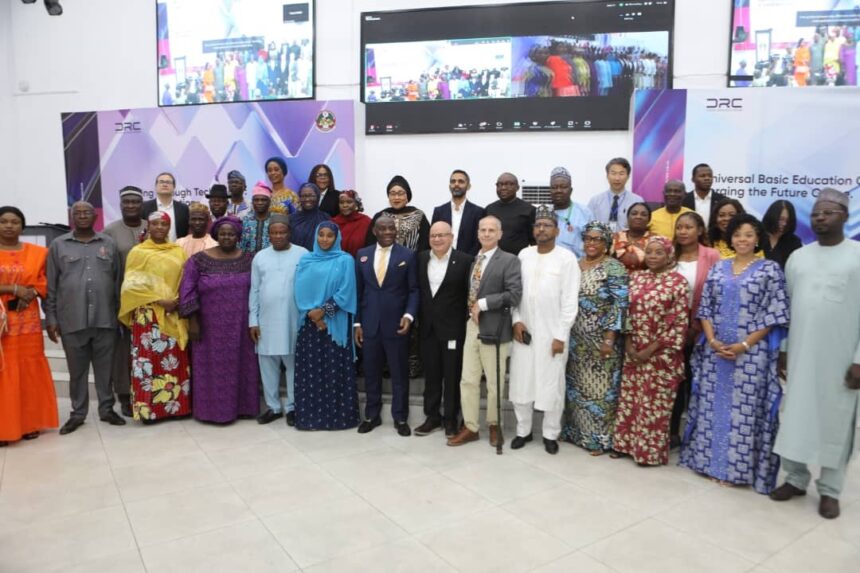The Minister of Education, Dr. Maruf Alausa, has called for an urgent and collaborative approach among key stakeholders to frontally address the lingering challenges in the education sector and by implication, strengthening the human capital asset for sustainable development of the country.
The minister, who gave the charge in his keynote address at the at the Education Sector Stakeholders’ Consultative Dialogue held on Wednesday at the UBEC Digital Resource Centre, Kado, emphasized the need for innovation, accountability, and strategic partnerships to revitalize the education sector and unlock the potential of Nigeria’s youth.
While acknowledging the supports from international development partners such as UNESCO, UNICEF, USAID, the European Union, the World Bank, the African Development Bank (AfDB), and the Global Partnership for Education in the drive to transform the education sector, Alausa, however, pointed out that current outcomes of the collective efforts remained unsatisfactory, urging all stakeholders to redouble efforts to ensure that investments in the sector yield measurable results.
Supporting his views with key statistical data, the minister painted an unimpressive picture of the education sector in which 20 million children were out of school, with nearly half having never attended school, and learning poverty reaching alarming levels.
According to him, these challenges, compounded by a rapidly growing population projected to hit 350 million by 2050, underscore the urgent need for innovative solutions.
Alausa urged all stakeholders, comprising government bodies, development partners, the private sector, and civil society organisations, to embrace a collaborative spirit, stressing that “education is not just an investment in our children; it is the foundation of our nation’s future. With dedication, innovation, and strategic action, we will transform Nigeria’s education landscape.”
To address these challenges, the Ministry of Education has outlined three strategic priorities: Equitable Access, Skill Development, and Governance and Data Management with the aim of expanding access to education, promote STEM and vocational education, and establish a robust National Education Management Information System (NEMIS).
Earlier in her remarks, Minister of State for Education, Dr. Suwaiba Said Ahmad, welcomed stakeholders, stressing the importance of synergy to overcome challenges such as infrastructural decay, inadequate funding, and teacher capacity development. She reiterated the Ministry’s commitment to achieving inclusive, quality education as outlined in the Sustainable Development Goals (SDGs).
Dr. Layi, Coordinator of the Education Sector Wide Approach, shared the next steps in transforming Nigeria’s education sector as including the reactivation of existing structures to improve education service delivery, as well as collaboration with development partners and the private sector to support education initiatives.
Technical working groups will be established to drive education sector reforms, and Key Performance Indicators (KPIs) will be developed to measure progress and hold stakeholders accountable. Furthermore, the sector will leverage data and digitization to improve education outcomes, ensuring that Nigeria’s education system is equipped to meet the needs of its growing population.
Representatives from UNESCO, UNICEF, USAID, the European Union, the World Bank, the African Development Bank, and the Global Partnership for Education (GPE) attended the event, delivering goodwill messages and sharing their valuable contributions and impact in Nigeria’s education sector thus far.
Experts believe that the Education Sector Stakeholders Consultative Dialogue marked the beginning of a renewed commitment to ensuring that every investment in education yields tangible results. With dedication, innovation, and strategic action, Nigeria’s education landscape is set for transformation.






